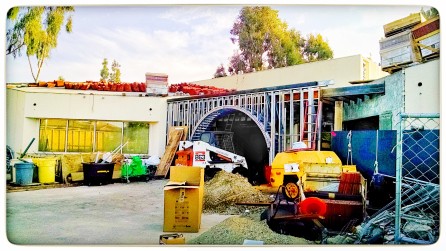If you enjoy Twitter conversations on education and you’re not yet familiar with #slowchatED, I highly recommend having a look. Rather than juggling questions and answers at the breakneck pace of many popular discussions, the #slowchatED model offers the opportunity for conversations that may benefit from a little more reflection. We push out one question per day over the course of a week, and throughout the week, participants are welcome to share their ideas as they are able and at their own pace.
Using the #slowchatED model, I’d like for us to design a school together, looking at individual aspects of school models over the course of the discussion. We’ve discussed similar questions in other Twitter groups, but I don’t believe that we’ve given ourselves sufficient time to explore our own ideas in depth, nor have I see much discussion of what an actual schedule, org chart, etc. would look like, if we had a say in their creation. With this particular discussion, I’m hoping to see not just theoretical ideas but actual concrete and specific solutions to the problems we’ve all dealt with. It’s one thing to give our opinions as critics, but it’s another thing altogether to offer real solutions to the problems we regularly discuss from the point of view of designers—we need to start doing more of this kind of work. Though each question below is broad enough for a Twitter discussion of its own, we’ll use them to work toward our own designs for successful school models in this way:
Q1 What does your ideal school calendar look like (i.e., daily schedule, teaching vs. service days, etc.)?
Q2 What does your ideal physical space look like (e.g., classrooms, offices, community space, etc.)?
Q3 Describe the ideal organizational structure of your school. Who makes decisions and how?
Q4 How do you hire, train, and retain quality teaching talent? Outline your ideal supporting PD program.
Q5 What else makes your ideal school unique or what wild idea would you love to try? What did we miss?
Q6 Write your school’s mission statement.
I’m eager to hear a variety of thoughts on these questions, but I’m even more excited for the ancillary conversations that will be born from our discussion. In particular, I’m curious to know what I haven’t yet thought of as being of central importance for school design. It will certainly be the case that the room will be smarter than any individual, and thanks to the variety of points of view and the general diversity of opinion on Twitter, I expect that these questions will be just starting points allowing us to explore school design more deeply. I hope that we push each other’s ideas to give us the opportunity to dive deeply into what we think is fundamental for school design. There will be no wrong answers!
With these questions as our starting point, how might we design a school? This is your perfect world in which you get to build your perfect school. Assume that there are no restrictions or limits for our designs; but however imaginative and revolutionary they may be, let’s also try to build a school that’s feasible. At the end of the week, I’ll invite everyone to reflect on our respective school designs and capture your model in a blog post of your own to share what you learned in the process. I can’t wait to see what we each build over the course of the week of Feb. 9 on #slowchatED.


